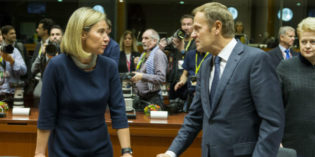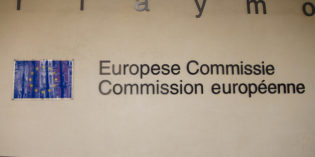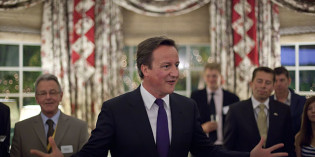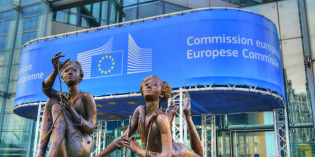Tag: Simon Hix

Seizing political opportunity: how the European Commission becomes a ‘policy entrepreneur’
Political actors need to be nimble and respond to the opportunity to reform old policies and initiate new ones. Manuele Citi and Mogens K Justesen look at how the European Commission takes advantage of politically opportune moments (the ‘gridlock interval’) in the European Parliament to put forward new legislation. As a ‘policy entrepreneur’, it is therefore […]

Is the EU really run by unelected bureaucrats?
Much of the UK’s referendum debate has focused on the extent to which EU decision-making is democratic, with the European Commission a source of particular criticism from leave campaigners on the basis that it is unelected. Simon Hix writes that while there are legitimate problems with the EU’s system of democracy, there is little to […]

The UK is, alongside other large states like Germany and France, at the heart of the EU policymaking process
How influential is the UK in EU decision-making? In the third in a series of articles, Simon Hix presents evidence on the countries EU member states choose to cooperate with during negotiations in the Council of the European Union. He writes that UK officials appear to be the best connected of all the member states’ […]

New electoral registration rules mean students are likely to be under-represented in the 2015 election
In this post, Jack Blumenau, Simon Hix, and Tony Travers argue that recent changes to the electoral registration process are likely to have significant consequences for the representation of students in the election in May. Similar PostsPrediction is very difficult, especially if it’s about the futureEngland’s local elections 2018: why the results will matter for both […]

The EU’s lack of shared interests will continue to inhibit the creation of genuine democratic culture
How can the EU survive in a post crisis world, given the asymmetry of its decision-making apparatus? Andreas Follesdal argues that this, along with other issues that beset the aimed democratisation of European institutions, hinders the creation of a real culture of democratic accountability and legitimacy. Many reflective scholars voice concern about persistent features of […]

Prediction is very difficult, especially if it’s about the future
Forecasting election results is hard. Forecasting UK election results is even harder. Forecasting in 2015 will be harder still. Over the coming months, this blog will showcase a wide variety of academic research analysing the forthcoming UK general election, with a particular focus on those researchers who are trying to predict the election outcome. In the […]


 Democratic Audit's core funding is provided by the Joseph Rowntree Charitable Trust. Additional funding is provided by the London School of Economics.
Democratic Audit's core funding is provided by the Joseph Rowntree Charitable Trust. Additional funding is provided by the London School of Economics.